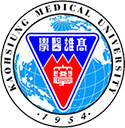Peptide drugs are characterized by low toxicity, as well as high efficiency and selectivity in targeting specific diseases. In the past two decades, peptides have become an important compound in the global drug market. The growth of peptide drugs has also been supported by advancements in synthetic technology. As a result, several peptide derivatives were introduced to the market.
Currently, biosynthesis and chemical synthesis are two major approaches for peptide synthesis. Although biosynthesis produces peptides in large quantities, it requires a long time to screen strains and purify the product, and it is difficult to prepare structurally altered derivatives. In contrast, chemical synthesis offers a flexible method for creating various derivatives. Liquid-phase and solid-phase syntheses are two major chemical syntheses of peptides. Liquid-phase synthesis methods are effective for short peptides. On the contrary, medium-length and long peptides were usually synthesized through solid-phase synthesis. After 7 decades of development, the SPPS was a powerful method for preparing linear peptides. However, their potential for peptide derivatives remains to be developed.
For the C-terminal modification, the team developed an efficient safety-catch resin, which allowed the introduction of various functionalities on the C-terminal at the cleavage step. One remarkable advantage is that no chromatographic purification is required for most products. With this method, the team synthesized amphiphilic peptides, branched peptides, and cyclic peptides. Moreover, this method was a foundation for a new ligation method for long peptides.
In 2024, the team received a grant from the National Science and Technology Council to support potential commercialization. One potential application is the ligation, which could synthesize the generic peptide drugs and contribute to the structural modification. During the grant period, the team conducted an in-depth study of the supply chain within the peptide industry. To create a comprehensive overview, the team actively attended the Raw Materials Exhibition and engaged with industry experts, including those from API chemical pharmaceuticals, AI drug development, CDMO biotechnology, raw material distribution, and cosmetics manufacturing. A preliminary result concluded that the standard compound for the product and its impurity during synthesis is in high demand on the market. This demand meets the scope of this skill.
A specialty peptide synthesis company was planned to launch within 3 years and establish a position in the peptide drug and synthesis services market. Starting from Taiwan, this team intends to serve pharmaceutical industries, API manufacturers, and biotechnology industries domestically and internationally by assisting biotechnology and pharmaceutical industries with more economic R&D and manufacturing costs, and a rapid new drug development process. This partnership will create a mutually beneficial relationship.

